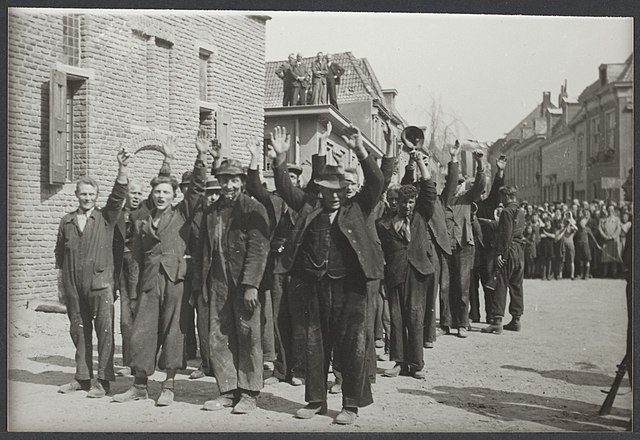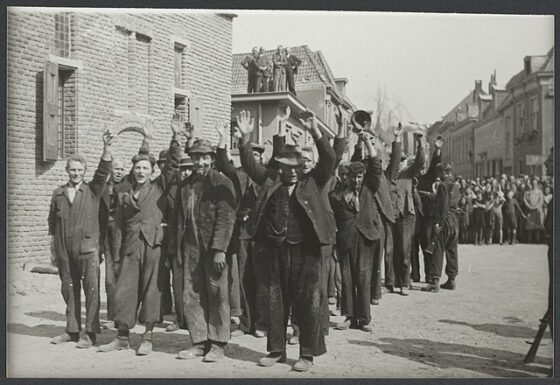Names of Nazi collaborators online from 2025


The names of people who were suspected of collaborating with the Nazis during World War II will become freely available to the public as the digitalisation of the 300,000 names in the special archive begins.
The Centraal Archief Bijzondere Rechtspleging (CABR) contains the names of those suspected of having collaborated with the Germans in some form, betrayed fellow citizens, were a member of the Nazi affiliated NSB or fought in the German army. The prosecution of collaborators started as soon as the war ended.
Both the names of people who were convicted – some 20% – and those who turned out to be falsely accused are in the archive. Some 1,900 of those who were found guilty spent 10 or more years in prison.
Access to the archive, which holds some of the most sensitive files on record, is currently restricted to people who can prove that the person in question is deceased or has given permission for the search. By 2025, most people concerned will have died and the restrictions can therefore be lifted, apart from those stipulated in the European privacy rules.
Impact
However, the impact on children and other relatives can still be serious, Edwin Klijn, who heads the digitalisation project Oorlog voor de Rechter (War on trial), told broadcaster NOS.
‘We have to take into account not only the technical and legal framework but the ethical dimension as well. That is why we are talking to relatives. We involve them in the process,’ Klijn said. Psychiatric reports and witness statements during the police investigation, for instance, will be out of bounds.
Many families lived with the shame of their parent or relative having been outed as a collaborator, and in others it became a well-kept secret. ‘I found out my father worked for the Germans when I was 18 from a newspaper article,’ Jeroen Saris told the broadcaster. His organisation Werkgroup Herkenning (Recognition) provides support to relatives of collaborators.
Saris said the restriction on certain documents is welcome but ‘anything and everything touches a nerve with relatives.’ Saris himself wasn’t ready to look at his father’s file until three years ago, he said.
‘We are not saying it shouldn’t happen. It’s a legal requirement. But it will cause a lot of emotion, particularly in the children of collaborators, who fear a repeat of the stigma and exclusion they experienced many years ago.’
Capacity
The digitalisation of the files is a rapid process, Klijn said, with a scanning capacity of some 152,000 pages a week. The archive will also add background information and files will be linked to allow for more search options.
Historian Ismee Tames said the digitalised archive would reveal ‘patterns’, for instance of when there was a surge of people working for the Waffen SS, where they came from, when they were convicted and who spoke for or against them. ‘That can be useful contextual information for people who want to find out about their grandfather or great grandfather,’ Tames said.
The project will run until 2027 but the first files will be available online on www.oorlogvoorderechter.nl from 2025.
Thank you for donating to DutchNews.nl.
We could not provide the Dutch News service, and keep it free of charge, without the generous support of our readers. Your donations allow us to report on issues you tell us matter, and provide you with a summary of the most important Dutch news each day.
Make a donation